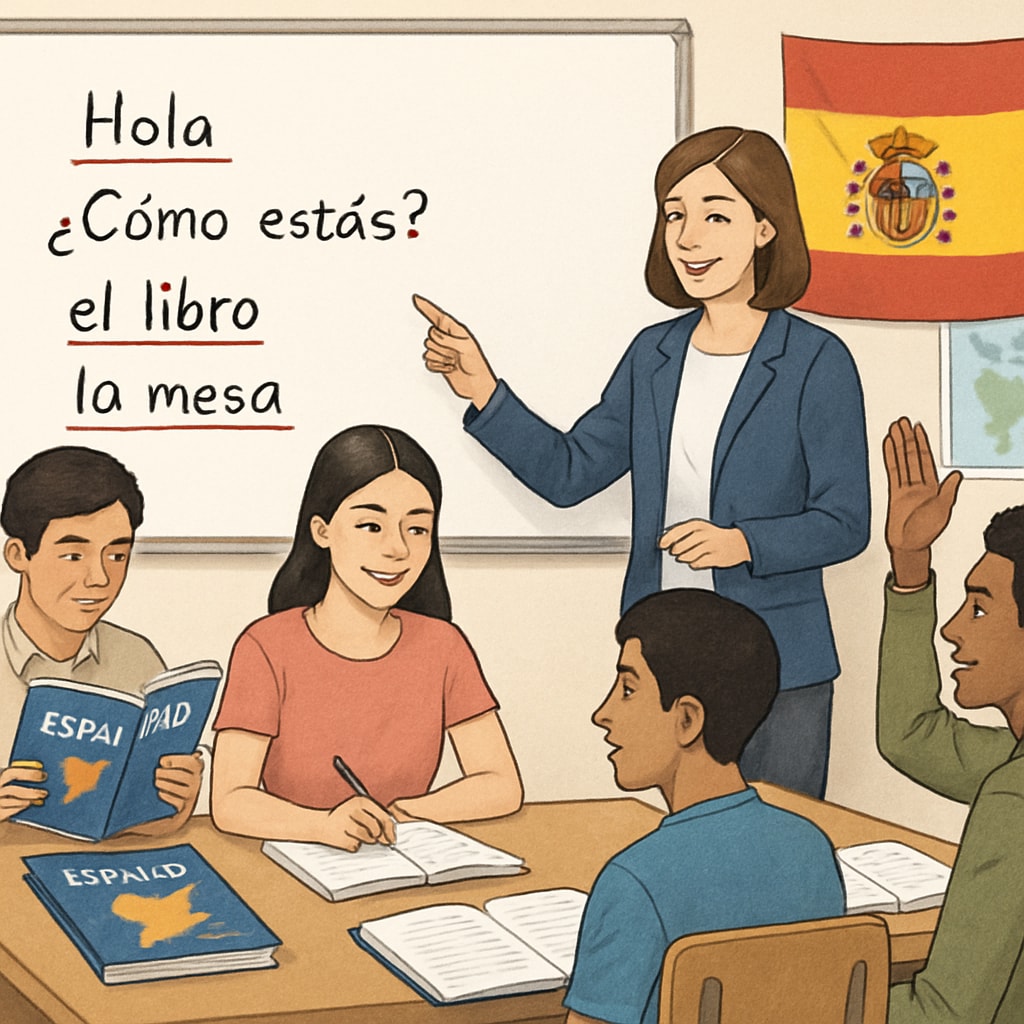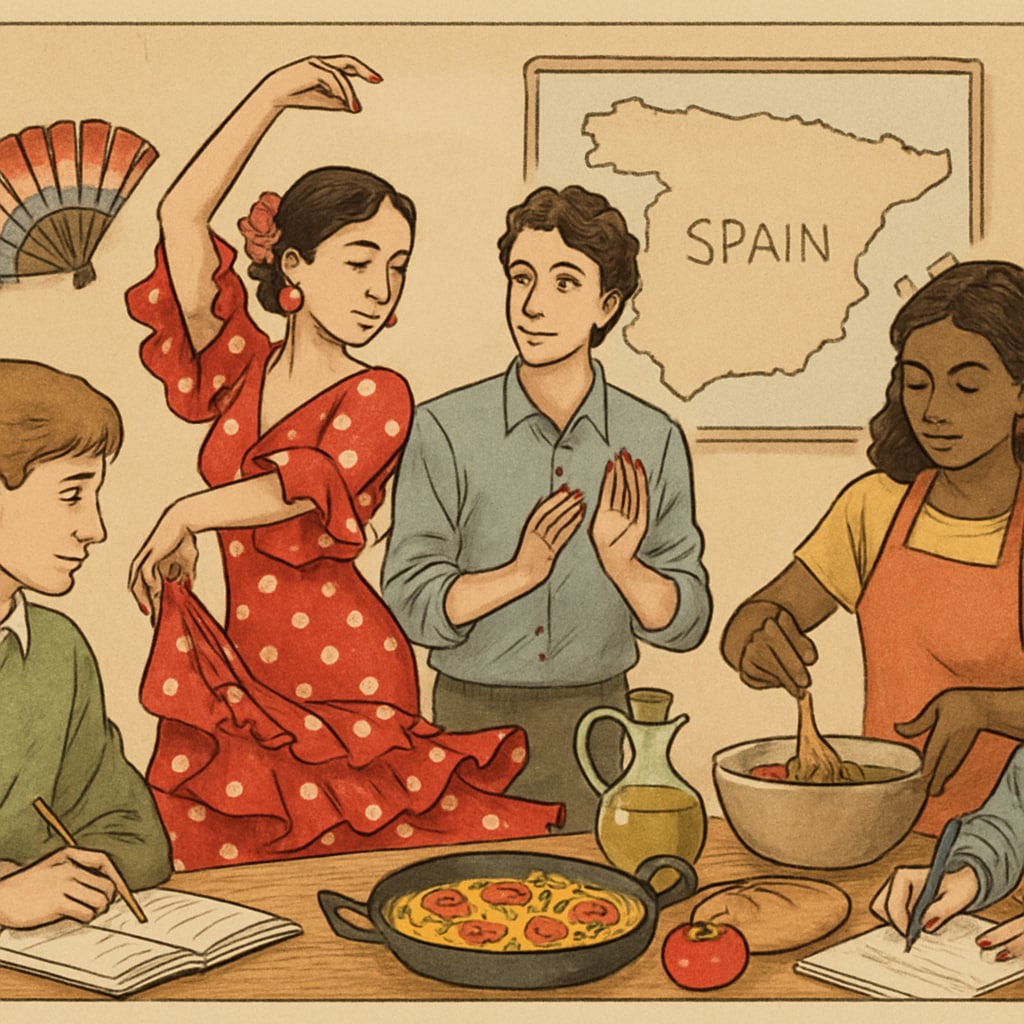Choosing to pursue a master’s degree in Spain is an excellent way for students to immerse themselves in a vibrant culture while advancing academically. However, successfully navigating this path requires careful preparation long before packing bags for the journey. By focusing on three key areas—language preparation, cultural adaptability, and fostering global awareness—K12 education can lay the groundwork for a seamless transition to studying abroad. This article explores how these elements contribute to a successful Spain study abroad experience, especially for aspiring master’s students.
Language Preparation: Unlocking Opportunities
Language skills form the cornerstone of any international education experience. For students planning to study in Spain, proficiency in Spanish is not just a bonus—it is often a necessity. Many universities in Spain offer master’s programs in Spanish, and even English-taught programs typically require some level of Spanish proficiency for engaging with the local community and navigating daily life.
Integrating Spanish language learning during the K12 years offers a significant advantage. Schools can encourage students to take Spanish classes, participate in language immersion programs, or even study abroad for short-term exchanges. These efforts help students build a strong foundation in both written and spoken Spanish. Additionally, language exams such as DELE (Diplomas of Spanish as a Foreign Language) provide benchmarks to measure and showcase proficiency.
- Encourage consistent practice through Spanish-language books, films, and music.
- Offer opportunities for conversation with native speakers through online platforms or local language exchange groups.
- Prepare students for standardized language exams to demonstrate proficiency.

Cultural Adaptability: Thriving in a New Environment
While language is the gateway to communication, cultural adaptability ensures that students can thrive in a new environment. Understanding the nuances of Spanish culture, including its traditions, social norms, and values, is critical for building meaningful relationships and successfully navigating day-to-day life in Spain.
During the K12 years, parents and educators can foster cultural adaptability by exposing students to diverse cultures. This could include celebrating international holidays, encouraging curiosity about global traditions, and fostering empathy for different perspectives. Specific to Spain, students might learn about unique cultural elements such as flamenco dancing, Spanish cuisine, and the significance of festivals like La Tomatina or Semana Santa.
Additionally, developing soft skills such as flexibility, open-mindedness, and problem-solving is crucial. Students who are adaptable and willing to embrace challenges are better equipped to integrate into Spanish society and handle the inevitable cultural adjustments that come with living abroad.

Building Global Awareness Through K12 Education
International education requires more than just linguistic and cultural skills. A well-rounded global perspective is essential for students who aspire to study abroad, particularly at the master’s level. Global awareness involves understanding global issues, respecting diverse viewpoints, and recognizing the interconnectedness of the world.
K12 schools can incorporate global awareness into their curriculum through interdisciplinary approaches. For example, history classes can analyze Spain’s role in global events, while geography lessons can focus on the country’s diverse landscapes. Encouraging participation in Model United Nations (MUN) or international exchange programs can also broaden a student’s worldview.
Furthermore, fostering an appreciation for multiculturalism helps students navigate Spain’s diverse society. Although Spain has a rich and distinct cultural identity, it is also home to a growing international community. Students who are prepared to engage with people from various backgrounds will find it easier to integrate into both academic and social settings.
To summarize, global awareness is not only an academic asset but also a life skill that enriches the entire study-abroad experience.
Final Thoughts: Preparing for Success in Spain
Studying abroad in Spain for a master’s degree offers unparalleled opportunities for academic growth and personal enrichment. However, success in this journey begins with preparation during the K12 years. By emphasizing language proficiency, cultural adaptability, and global awareness, students can confidently pursue their dreams of studying in Spain and integrating into its vibrant society.
Parents and educators play a pivotal role in guiding students through this preparation process. With the right foundation, aspiring master’s students can turn their international education dreams into reality and thrive in Spain’s dynamic academic and cultural environment.
For further reading, explore resources like the Education in Spain on Wikipedia or the Spain entry on Britannica for insights into the country’s educational and cultural landscape.
Readability guidance: Focus on short paragraphs, clear transitions, and accessible language. Use lists to highlight actionable tips, ensuring a reader-friendly structure.


